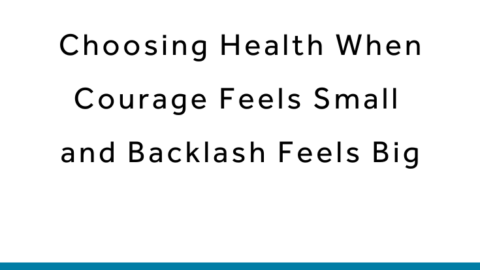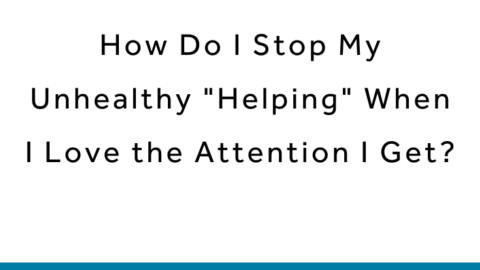:max_bytes(150000):strip_icc():format(jpeg)/HowtoNaturallyIncreaseSerotoninLevels_D-c988acbd8a1d4b9c8a2392ffe49442f9.jpg)
I’ve seen the claims online and you probably have too. Internet influencers promise natural and quick-fix ways to boost serotonin levels, so your moods are balanced and you’re always uber-happy. Sounds pretty good to me, but in the era of misinformation and pseudoscience, are these promises too good to be true? Can you naturally increase serotonin levels in the body?
Serotonin is a neurotransmitter that plays an important role in mood, memory, and behavior. It’s often used to treat conditions like depression. In fact, many antidepressants work by increasing serotonin levels in the brain. The question is whether people can naturally increase serotonin without medications.
I tagged a few psychiatrists and got their expert opinions. Most agree you can boost serotonin through simple lifestyle modifications like exercise, better sleep, and balanced nutrition. But none of these are quick fixes and they require *a lot* of work and diligence. Not only that, but no natural serotonin boost should ever replace the need for medications.
Below, you’ll find everything you need to know about increasing serotonin naturally, including the mental health myths about the neurotransmitter and the expert-approved ways to boost your serotonin levels stat.
Understanding Serotonin
You know serotonin is a neurotransmitter, but what does that mean, exactly? Grab your pens and paper. Here’s a little science lesson for you:
Serotonin is a type of neurotransmitter, which means it’s a messenger that sends signals between your nerves and the rest of your body. According to Harold Hong, MD, MBA, psychiatrist and medical director at New Waters Recovery, serotonin is “crucial in regulating mood, sleep, digestion, and even appetite.”
As Dr. Hong notes, serotonin is often called the “feel-good” chemical because of its role in positive emotions and overall well-being. “Balanced serotonin levels are essential for mental health, as low serotonin has been associated with conditions like depression and anxiety,” Dr. Hong explains.
Myths and Facts about Serotonin and Mental Health
When it comes to “boosting” serotonin for mental health, there are some misunderstandings folks tend to have, says Dr. Hong. “A common misconception is that serotonin alone can fix mental health issues, but it is more complex than that,” he explains. “While serotonin plays a role, mental health conditions like depression are influenced by various factors, including genetics, life experiences, and other brain chemicals.”
The Bottom Line
That means that while increasing serotonin can be helpful, it’s not a “magic cure,” and treating mental health involves a more holistic approach.
According to Markyia Nichols, MD, OB-GYN, functional medicine doctor and chief medical officer at Ciba Health, another common myth about serotonin and mental health is that serotonin is found primarily in our brains. “Many people believe serotonin is exclusively housed in our brains, but 90% of it is actually made in our guts, and another 8% is located in our bloodstream,” she explains. “That means, the more we tend to our gut health, the better our mental health—and other physiological processes—can be, potentially.”
Natural Ways to Increase Serotonin
There are several natural, evidenced-based ways you increase serotonin. Take a look at what these are, how they work, and what they involve.
Dietary Adjustments
There is some evidence that eating foods rich in tryptophan can boost serotonin, says Dr. Hong. That’s because tryptophan is an amino acid that your body uses to make serotonin. “Foods like turkey, salmon, eggs, tofu, and nuts are excellent sources,” says Dr. Hong. “Interestingly, pairing tryptophan-rich foods with carbs helps your body absorb and use tryptophan more effectively.”
Additionally, just eating an overall healthy, well-balanced diet can help, as can focusing on foods that are good for your gut, says Dr. Nichols.
Did You Know?
“Because serotonin is primarily housed in the gut, it’s crucial to eat a diet rich in a variety of whole foods, from fruits and vegetables to nuts, seeds, and legumes,” she says. A diverse gut microbiome can be helpful, so Dr. Nicols suggests a diet rich in plants, fiber, and protein to keep serotonin levels balanced.
Exercise
Engaging in healthy movement can work wonders for your mood and your serotonin levels. “Regular physical activity, especially aerobic exercises like running, cycling, or swimming, can increase serotonin production in the brain,” Dr. Hong says. And you don’t have to exercise for hours every day. “Just 30 minutes of movement a day can significantly impact serotonin levels and overall mood,” he notes.
Sunlight Exposure and Light therapy
There’s a relationship between your exposure to natural sunlight and your body’s ability to produce serotonin. The more sunlight you’re exposed to, the more serotonin you produce. “Aim to get at least 15-20 minutes of sunlight each day, especially in the morning, to help regulate serotonin levels and improve mood,” Dr. Hong advises.
Tip: And if you can’t get out that much? “A light therapy box can also be beneficial if you live in a place with limited sunlight,” Dr. Hong offers.
Supplements to Boost Serotonin
Supplements are all the rage these days, and while they have their place, it’s important to consult with a healthcare provider before jumping on the supplement bandwagon. The FDA doesn’t directly regulate supplements, and sometimes supplements are recommended without evidence for their effectiveness.
That being said, here are some serotonin-boosting supplements our experts recommend:
Omega-3 Fatty Acids
Omega-3 fatty acids are found in foods like fish and flax seeds. They can also be consumed by taking capsules or liquid supplements. According to Dr. Hong, omega-3s “have been shown to support brain function and may enhance serotonin production, improving mood over time.”
Vitamin D
Along with omega-3s, vitamin D is also linked to increased serotonin production. As Dr. Nicols points out, “most people are deficient in Vitamin D,” so taking this supplement form can be super beneficial.
Probiotics
Since serotonin and gut health are linked, maintaining a healthy gut is vital for serotonin production. That’s why Dr. Nicols suggests considering taking a probiotic supplement for improved gut health and improved serotonin production.
5-Hydroxytryptophan (5-HTP)
5-hydroxytryptophan (5-HTP) is a precursor to serotonin and is often used to boost serotonin levels. However, it’s crucial to use this under the guidance of a physician, especially if you take antidepressants. “If you’re on antidepressants, it can cause serotonin levels to spike too high, so it’s essential to use it cautiously,” Dr. Hong says.
St. John’s Wort
St. John’s wort is a natural supplement used to manage mild depression. It may also increase serotonin, according to Dr. Hong. Like 5-hydroxytryptophan (5-HTP), it can interact with medications like antidepressants, so it’s essential that you take it with doctor supervision, Dr. Hong emphasizes.
Lifestyle Changes
There are some powerful lifestyle tweaks you can make to maximize your body’s production of serotonin. Here are a few expert-driven ideas.
Reduce Chronic Stress
Living with chronic stress can reduce serotonin levels, says Dr. Hong. Incorporating stress-reducing practices like mindfulness, deep breathing exercises, and yoga, can help, he says.
Prioritize Sleep
Prioritizing good sleep can keep your serotonin levels balanced, Dr. Hong says. “Getting 7 to 9 hours of quality sleep is necessary because serotonin produces melatonin, the hormone that regulates sleep,” he says.
How to do this? Dr. Nichols suggests the 10-3-2-1 method for better sleep:
- Ten hours before bed, cut out caffeine
- Three hours before bed, stop eating
- Two hours before bed, refrain from beverage consumption
- One hour before bed, turn out overhead lights, screens, or wear blue light glasses
Consider Therapy
Therapy, specifically cognitive behavioral therapy (CBG), keeps your serotonin levels in balance. According to Dr. Hong, CBT “has been shown to improve serotonin function by helping change negative thought patterns.”
Strong Boundaries
“Staying mindful about how you spend your time and who you spend it with is critical,” Dr. Nicols shares.
“Protect your energy and embrace the power of saying ‘no’ to certain requests, even when you feel like you ‘should’ say ‘yes.’”
Keeping strong, mindful boundaries can support your mental health and keep your serotonin levels on the right track, she says.
Limit Doomscrolling
Doomscrolling is something all of us are guilty of doing, especially these days. This can take a hit on mental health and knock serotonin out of balance, Dr. Nicols says. Consider setting a time limit for yourself when it comes to doomscrolling and social media in general, she suggests.
Potential Risks and Considerations
While there are few risks to increasing serotonin naturally, there are some things to keep in mind.
First and foremost, if you are considering taking any supplements, you should talk with your provider beforehand, especially if you take other medications like antidepressants. You can potentially develop a condition called serotonin syndrome if you knock your serotonin levels out of balance.
What Is Serotonin Syndrome?
“Serotonin syndrome is a rare but severe condition that occurs when there’s too much serotonin in the body,” explains Dr. Hong. Some common symptoms include muscle stiffness, fast heart rate, and confusion. “It’s more likely to happen if you’re combining serotonin-boosting supplements like 5-HTP with medications such as SSRIs,” he explains.
It’s also important not to rely solely on lifestyle changes and supplements to balance serotonin levels.
Important
Mental health challenges are real and can be serious at times, and you should partner with a licensed mental health professional if you are having severe symptom.
“Seek out a board-certified mental health professional when you have ongoing feelings of sadness or anxiety that do not improve with self-care,” advises Dr. Nicols. “Seek help with any changes to sleep, appetite, digestion, or anything else that makes it difficult to manage work, school, home life, or relationships.”
The Bottom Line
Having adequate serotonin is important for our overall mood and mental well being. That’s why you hear about so many ways to “naturally boost serotonin.” While there are a few legit “natural” ways to do this—including exercise, getting enough sleep, eating well, and getting out in the sun—there’s no magic fix for getting these results. Keeping your serotonin levels healthy sometimes involves medication, too, as well as therapy. Reach out to a mental health professional about help and support if you are living with mood fluctuations, or mental health challenges.









